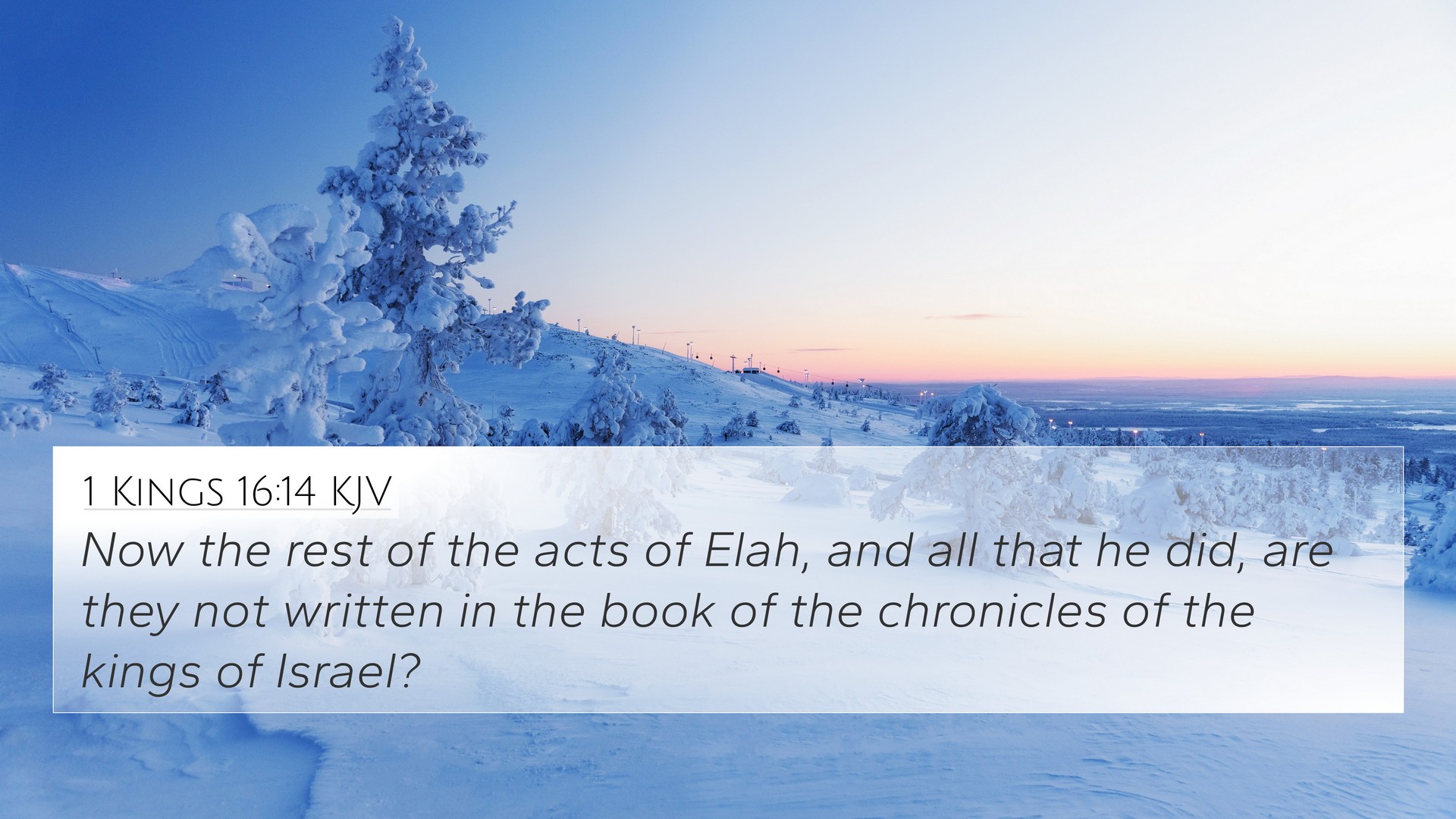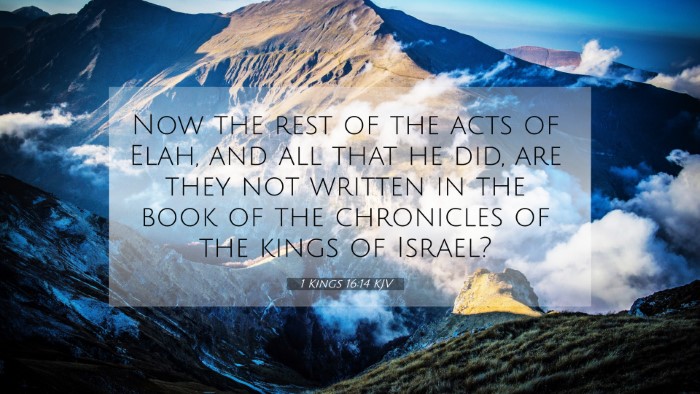Understanding 1 Kings 16:14
Verse: "Now the rest of the acts of Omri which he did, and his might that he showed, are they not written in the book of the chronicles of the kings of Israel?"
Contextual Background
This verse is part of the narrative surrounding King Omri, the sixth king of Israel. Omri’s reign is significant for its political and military accomplishments, as well as for paving the way for the later actions of his son, Ahab.
Commentary Insights
Several public domain scholars provide insights into this verse:
-
Matthew Henry:
Henry emphasizes the importance of Omri's deeds and his might, noting that the impact of his rule extends beyond the pages of Scripture. The repeated references to chronicles hint at historical records that provide a more extensive view of Israel's leadership.
-
Albert Barnes:
Barnes remarks on the significance of written records, suggesting that the mention of the chronicles establishes a standard for understanding the historical context of Omri’s reign. This suggests an acknowledgment of other sources outside the Biblical canon that document the history of Israel's kings.
-
Adam Clarke:
Clarke posits that such records serve as a contrast to the divine evaluations found in Scripture. The chroniclers may have celebrated Omri's achievements while the Biblical narrative portrays a more critical view of his spiritual failures.
Thematic Connections
This verse touches on themes of:
- Historical Record Keeping
- Divine Judgment vs. Human Acclamation
- The Legacy of Biblical Leadership
Bible Verse Cross-References
Numerous Bible verses resonate with 1 Kings 16:14, highlighting its themes and contextual background:
- 2 Chronicles 22:5: Discusses similar royal actions and their consequences.
- 1 Kings 16:29-30: Details Ahab's reign but contrasts Omri's legacy.
- 1 Kings 11:31: Reflects on the history of leadership in Israel with implications on future kings.
- Jeremiah 23:13: Critiques false prophets, indirectly linking to kings like Omri.
- 1 Kings 15:25-26: Details the actions of preceding kings to highlight the contrast in reigns.
- Deuteronomy 17:18-20: Discusses the requirements for kings in Israel and the nature of their rulership, relevant to Omri's legacy.
- Amos 6:1-3: Addresses complacency during prosperous times, which can be tied to the kingships such as that of Omri.
Comparative Bible Verse Analysis
This verse invites further exploration into:
- The connection between the rule of Omri and the later corrupt practices under his son Ahab.
- Assessment of how kings are evaluated through both their achievements and their relationships with God.
- The legacy of Israel’s leaders in the context of faithfulness and judgment throughout the history of Israel.
Tools for Bible Cross-Referencing
For those interested in exploring deeper connections across Scripture, consider utilizing:
- Bible Concordances: Handy for finding specific phrases and themes across various books.
- Cross-Reference Bible Study Guides: These materials can aid in systematic studies of thematic connections.
- Bible Chain References: Useful for tracking significant biblical themes and narratives throughout the Scriptures.
How to Use Bible Cross-References
For effective engagement with Scripture through cross-referencing, consider these methods:
- Identify key themes and keywords in the Bible verse you’re studying.
- Utilize a reliable cross-reference guide to find linked verses.
- Engage in comparative studies between different biblical figures or events that share thematic elements.
Conclusion
1 Kings 16:14 serves as a significant reminder of the importance of documenting history, the complexities of leadership, and the moral evaluations by God versus human recognition. By utilizing cross-referencing tools, readers can engage with Scripture in a deeper, more meaningful way, drawing connections that enhance their understanding of biblical themes and narratives.


